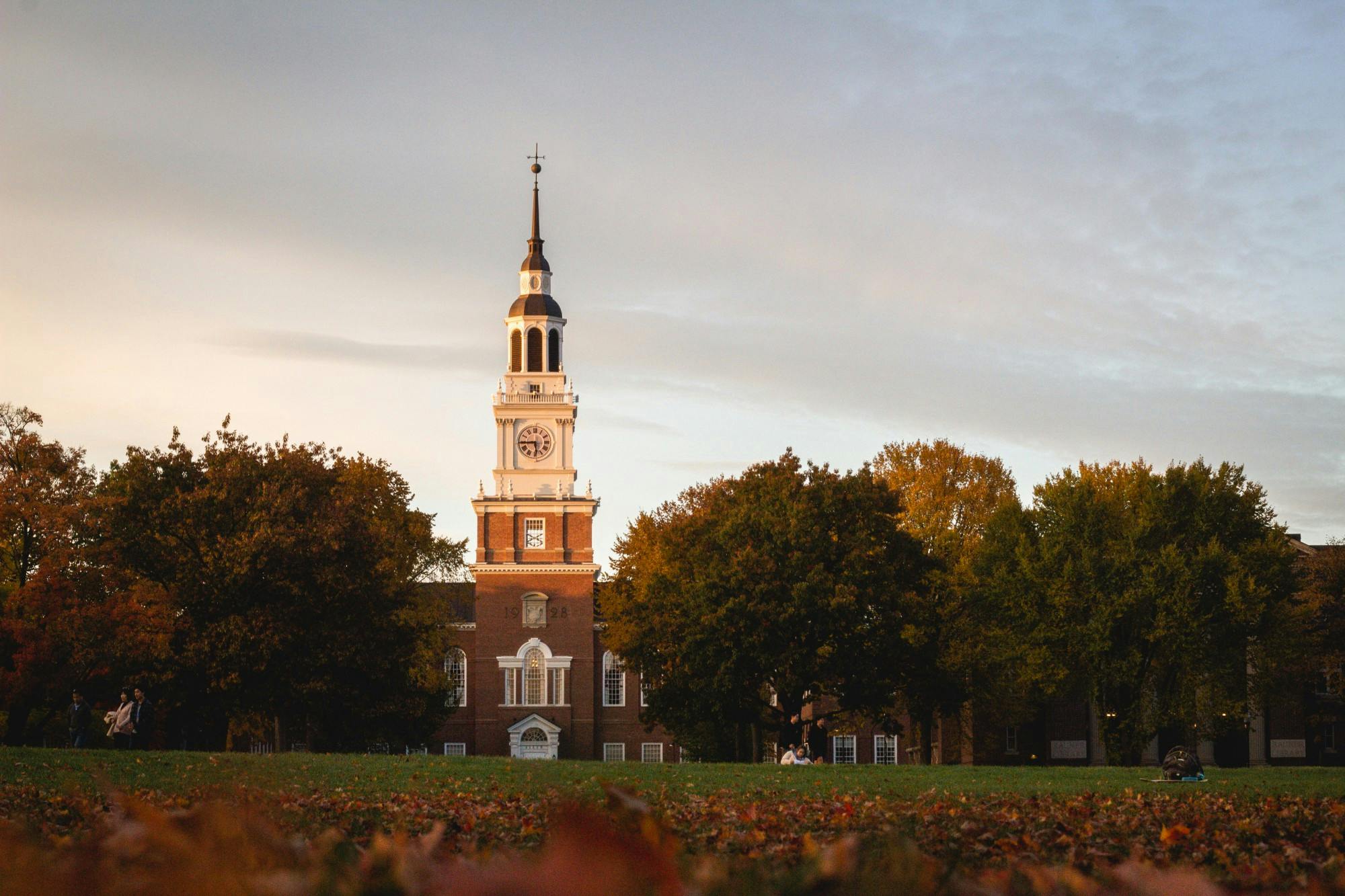On Friday, Oct. 21, the College held a Day of Caring in response to recent deaths of students and other community members. In lieu of classes, which were canceled for the day, students were encouraged to spend time caring for themselves and expressing care for others around them, according to the College.
Associate dean of student affairs Marianne Thomson said coalitions of undergraduate and graduate students, faculty and administrators volunteered their time to put together a “choose your own adventure” schedule of optional campus events. According to the Office of the President, the schedule included yoga, walks around Occom Pond, “low stimulation” and “gratitude” spaces, sessions about mental health resources and free beverages and lunch.
The Day of Caring has impelled Dartmouth’s administrators to think “institutionally about creating an environment where students thrive,” according to interim Dean of the College Scott Brown.
Thomson added that the Day of Caring was a microcosm of the ongoing College conversation with the JED Foundation – a collaborative effort to develop stronger mental health infrastructure for Dartmouth.
The Day of Caring planning committee was spearheaded by Laura Hercod, chief of staff of the President’s Office, according to Thomson. Under Hercod’s leadership, Thomson said faculty and administrative staff were joined by undergraduate, graduate and professional school students to be a part of the committee. There were over 30 students and staff members on the committee and over 30 others who volunteered and ran sessions, in addition to dining and custodial staff who were working the events.
Thomson said that the planning committee began by appraising what they wanted people to take away from the Day of Caring in a time of campus-wide grief. Their first order of business was ensuring that the finalized schedule wouldn’t be “overprogrammed” and alleviating any pressure for community members to participate in these events, she said. Their intent was for people to “be willing to pause together.”
“We didn’t actually start looking at programming at the beginning,” Thomson said. “We looked at what we wanted people to get out of it, how we wanted people to feel. We landed on not wanting an over programmed day. We wanted a day where people wouldn’t have a fear of missing out.”
Constance Legrand ’25, a co-chair of the Environmental Stewardship Division, led a walk to Mink Brook as part of Day of Caring programming. She said she wanted the experience to provide a moment for people to breath amid Dartmouth’s “hectic” campus life and to reacquaint themselves with spending “valuable” time outdoors.
Legrand emphasized that the walk she led was designed to be less strenuous, with no barriers to entry.
According to Thomson, another top priority was creating avenues in which the community could come together. The committee agreed on several unifiers, such as free food. Other diverse and low-stress offerings included yoga, tea, planting, painting and the return of Barn Babies — where students can hold baby animals like bunnies, kittens, kid goats and puppies.
“I talked to one of our custodians who sat down with some students and painted rocks together, and I thought, ‘that’s exactly what we need more of,’” Thomson said. “She [the custodian] had a smile on her face, feeling like… part of the community that day, and I hope a lot of people got those micro moments together.”
There was also virtual programming for community members who were off campus, including virtual yoga and Headspace meditation sessions, according to Thomson.
Another program offered during the Day of Caring was an archival exhibit at Rauner Special Collections Library, collated by Sabrina Eager ’23 and Kira Parrish-Penny ’24, that focused on the College’s history of responding to tragedy. Parrish-Penny said it provided a space to discuss instances when Dartmouth “succeeded for its community” in its responses to mental health needs, such as the construction of Dick’s House in order to curb the isolation that sick students faced without an on-campus health center.
Additionally, the College hosted a panel with the JED Foundation to promote the strategic development of policies that will translate into long-term outcomes affecting campus mental health. Brown referred to JED as a vital “facilitator” in developing the “strategic goals” that will improve campus mental health.
Brown said he was confident that these preliminary sessions on grief, access to care and mental health training would, in the long run, be investing in the “institutional strength” of the College. As the College heads into year two of its ongoing partnership with JED, Brown added that he hopes to see community input influence campus services and standards of wellbeing.
Abby Paquette ’26 said she attended some of the Day of Caring program offerings and appreciated the sessions.
“Overall, it was just really relaxing and a good way to calm down and not have to sit with my thoughts,” Paquette said. “I liked just kind of spending time not having to do anything specific and de-stressing.”
While the Day of Caring enabled sessions on grief, access to care, and mental health training, some students feel that there is still more that must be done for student mental health.
Parrish-Penny, added that more can be done for student mental health and said she believes there should be continued communication between students and the College beyond the one-time success of the Day of Caring.
“[The Day of Caring] is a way for [the] administration to show they care, but I also hope it reflects broader cultural changes at Dartmouth,” Parrish-Penny said. “The Day of Caring needs to be a culture of caring.”




